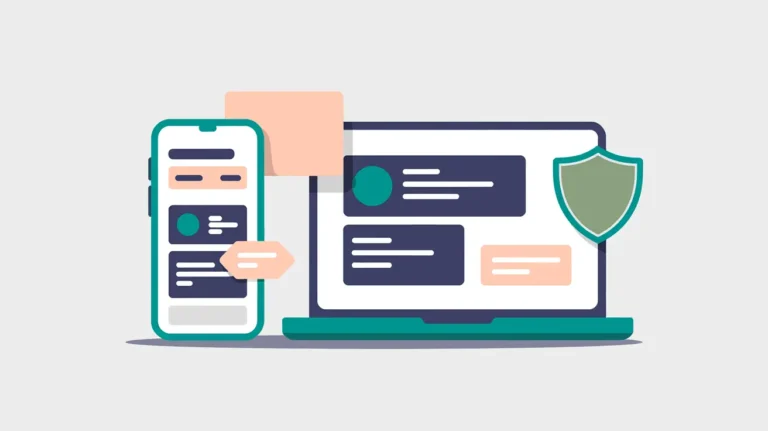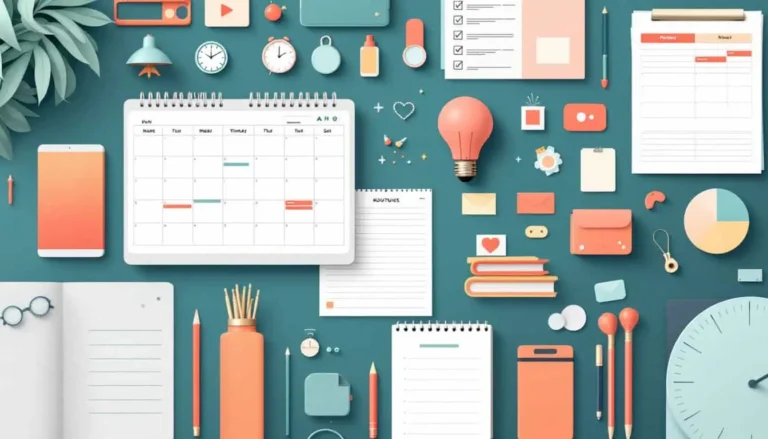7 Powerful Reasons Teachers with ADHD or Autism Need Boundaries
Have you ever ended a school day feeling completely drained?
Like someone opened a valve and let all your energy pour out?
I sure have.
That's why today I'm answering the question, why do boundaries matter?
(Especially for neurodivergent teachers with ADHD, autism, AuDHD, or other conditions.)
There were days I'd get home and literally collapse on the couch.
I'd be unable to form complete sentences for my family.
As neurodivergent teachers, we often give more than we receive.
We notice everything, feel everything, and try to solve everything.
Without clear boundaries, this imbalance leads straight to burnout.
Trust me, I've been there!
The Purpose of Boundaries
Boundaries aren't barriers keeping good things out.
(Though I used to wish I had an actual wall between my desk and the chatty friends with ‘just one question.')
They're filters deciding what deserves your precious energy.
For neurodivergent brains, these filters don't always come pre-installed.
I can't tell you how many times I've taken on extra committee work because “someone needs to do it.”
Or directed an extra program to cater to every faculty member's preferences.
We often need to consciously create and maintain these filters.
When boundaries are working properly, they protect your limited resources.
They help you distinguish between your responsibilities and others' – something I'm still working on.
Sign up here for your free ADHD in Women Checklists guide!

The Hidden Benefits
Setting clear boundaries actually makes you a better teacher.
Even if you go on to do other professions, it is a skill that can go with you.
Even though I'm not currently teaching, I have more energy for the things that actually matter.
Students learn from watching how you respect yourself.
My last year of teaching, one of my students said it all.
She said, “I like how you tell us when you need a minute. It makes me feel like it's okay when I need one too.”
Your boundaries become a powerful teaching tool about self-respect.

The Cost of Weak Boundaries
Without solid boundaries, your nervous system stays on high alert.
Can you identify with one or more of these sentiments?
Every student crisis becomes your crisis.
Every parent concern becomes your emergency.
Every administrative demand feels non-negotiable.
This constant state of hyperarousal depletes your body's resources.
(Faster than my coffee disappears.)
Needless to say, that is exhausting over time.
Here are some more boundaries examples.

Boundaries as Self-Care
For many teachers, including myself, setting boundaries can feel selfish.
We're used to masking and accommodating others.
But boundaries are necessary maintenance.
Just like you wouldn't drive a car without ever filling the gas tank, right?
You can't teach effectively without replenishing your energy.
Sure, it's over-simplifying the situation. But it's also true that our bodies remember.
I would often try to make it through a whole year without taking a single day off.
Spoiler alert: I ended up taking more than one when I got sick from the exhaustion.
Boundaries are how you make space for that replenishment.
Recognizing When You Need Stronger Boundaries
Pay attention to these warning signs:
Feeling resentful about helping others.
- (If you've ever silently rolled your eyes when a colleague asks for “just one more thing,” this is you.)
- Thinking about work constantly during your personal time.
- Finding yourself unable to relax even when you have downtime.
- Physical symptoms like headaches, stomach issues, or sleep problems.
- I knew I needed tougher boundaries when I would check work email at 9 PM.
- (While simultaneously complaining about work-life balance.)
- (The irony is not lost on me.)
These are some signs your body may be telling you something needs to change.
- (While simultaneously complaining about work-life balance.)

Your Weekly Boundary Challenge
This week, I want you to notice one situation where you feel your energy draining.
It might be the third time a specific colleague interrupts your lunch break.
Or when that one parent emails you at 10 PM expecting an immediate response.
Write down exactly what happened and how it made you feel.
Then, imagine what boundary could have protected you in that moment.
Read about some boundaries scripts ideas that can help you get started.
Come back and share what happened in the comments, or post about it in our Facebook community.
Remember that setting boundaries is a skill, not an innate talent.
Yes, you will likely encounter some of these common boundaries issues.
However, like any skill, it gets easier with practice.
Understanding neurodivergent boundaries, especially your own, takes time. But, it is so worth it.
What's one boundary you want to strengthen this week?
Join the Community
Want to connect with other like-minded educators?
We share ideas, ask for help, vent, and generally support each other.
Visit our Facebook group and take it one step at a time.
You've got this! ❤️
Found Something Helpful? I'd Be So Grateful If You'd Please Pin One of These Images!
It truly helps my blog reach more teachers like you. Thank you!










